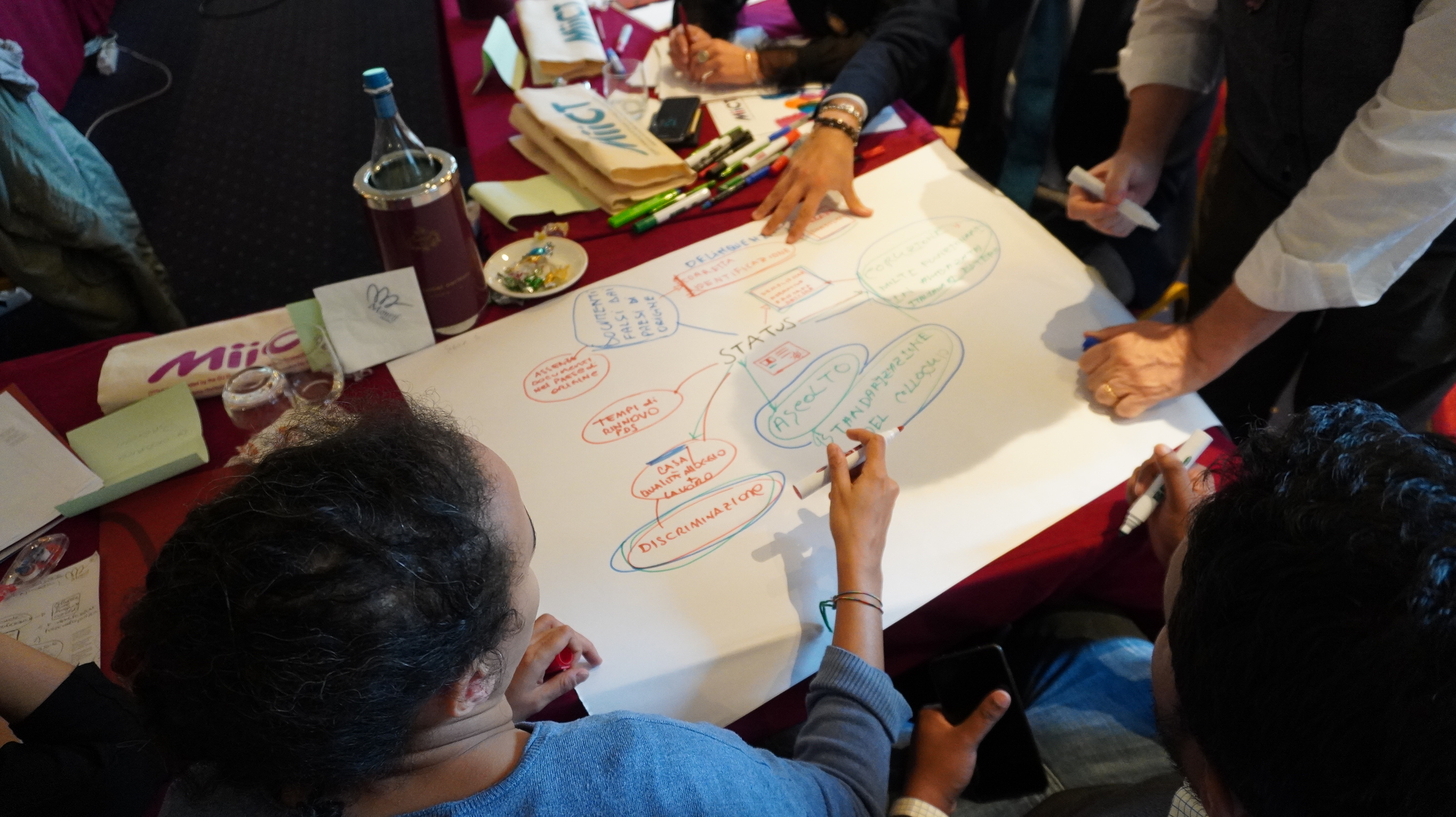
04 Nov The power of co-creation proved again – Mind mapping and paper prototyping teased out solutions for main challenges
by Miia Seppanen, Laurea University (Finland)
The second round of co-creation workshops is successfully completed. As a result, we can be proud of the whole series of events that took place in Italy, Cyprus and Spain. In addition to our project team members and local partners, we had the privilege to co-create and design ICT-enabled services with participants from different stakeholders: migrants and refugees, public service providers and NGOs.
Each of the workshops included two phases. In the first phase, participants were working in mixed teams and co-created ideas and solutions for the most important needs and challenges. The topics for the mind maps were selected in advance based on the requirement elicitation phase where nine pillars were identified. The main challenges are dealing with education, accommodation, health, social integration, social welfare, employment, language, status and transportation. Each of the teams were concentrating on different set of challenges and solutions for them – most importantly, they were looking at potential solutions from different perspectives. The needs and solutions may differ between different user groups and therefore it was important to identify the solutions by using different colours.
The second phase was about paper prototyping. In this part, the teams continued the ideation of potential solutions. In addition, they were introduced with the first initial versions of paper prototypes that had been created based on the outcomes from previous phases in the project. The paper prototypes were dealing with the identified needs such as housing, education, various community groups, official forms, language, translation applications, etc.
First, the teams were advised to get familiar with the services in paper and in tablets. In addition to the paper format, these services were also available in a test environment, where users were able to click and test the navigation and some basic functionalities. The main task in paper prototyping was to come up with ideas regarding the initial services and incorporate the potential solutions from the mind mapping phase. After ideation teams voted and formed the ranked TOP 5 prioritization for their ideas, and finally created paper prototypes where these ideas were explained in more detailed.
This workshop round proved again the power of co-creation. Creating and designing together with different types of users enable us to create more value and reliability to the services. In addition, you get valuable feedback for the contents throughout the project. When the results are taken into account, this approach supports the usability and implementation of the service platform that is created by using various co-creation methods during the project. Next round of workshops is about live prototyping taking place in 2020. Co-creation vibes will be in the air again – stay tuned.
